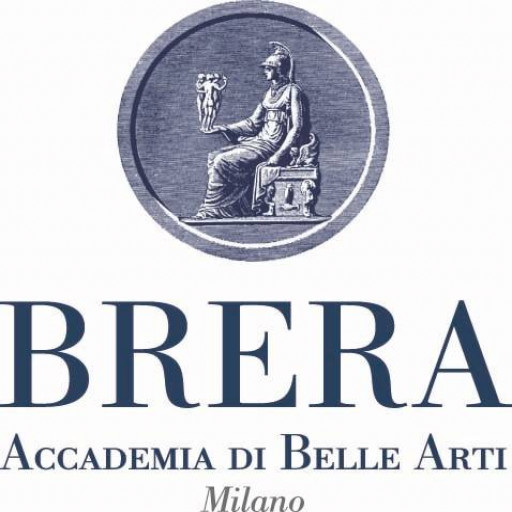Photos of university / #cambridgeuniversity
The Master of Arts in Film and Screen Studies at the University of Cambridge offers a comprehensive exploration of the history, theory, and key practices of film, television, and digital media. Designed for students interested in deepening their understanding of screen culture, the programme combines rigorous academic analysis with critical engagement with contemporary media industries. Throughout the course, students examine a wide range of cinematic works, from classical Hollywood to global cinemas, and explore their social, political, and aesthetic contexts. The curriculum includes modules in film history, film theory, and media analysis, fostering skills in critical thinking, research, and academic writing. Students also have the opportunity to engage with practical aspects of filmmaking and screen production, supported by state-of-the-art facilities and expert faculty members. The programme encourages an interdisciplinary approach, drawing on insights from cultural studies, media studies, and other related fields, providing a well-rounded perspective on the role of visual media in society. Throughout their studies, students are expected to undertake independent research, culminating in a dissertation that contributes original insights into a chosen area of screen studies. The programme prepares graduates for careers in media, education, research, and creative industries, as well as for further academic study at doctoral level. With the university’s rich resources and academic support, students are well-positioned to critically analyse the evolving landscape of film and screen media in a global context.
The course structure
The Film and Screen Studies MPhil is a nine-month course that runs from October to June of any given academic year. It is classified as a research Master's. Students are expected to submit coursework and a thesis during the year, as follows:
Michaelmas Term: Core Course
During the first term of study, students attend weekly seminars and film screenings designed to give them a broad insight into moving image theory and culture. Half of the Core Course focuses on combining the study of classical and contemporary film and visual theory; the other half hones in on specialized historiographic and theoretical problems in the study of moving image media. The Course is, thus, both intensively grounding and intellectually expansive. At the end of this term, students submit one essay. The essay focuses on a specific theoretical framework or critical approach.
Lent Term: Modules
Students can choose from a range of module options. Some focus on the moving image, others are shared with different MPhils (e.g. European, Latin American and Comparative Literatures & Cultures; English: Culture and Criticism) and other departments and Faculties within the University, such as Architecture & History of Art, English, and Latin American Studies, among others. (The list of modules can change from year to year depending on the availability of academic staff.)
During Lent Term, students attend weekly group seminars led by the module convenor. Essays are submitted at the end of Lent Term.
Lent term modules may include:
- Modern and Contemporary French and Francophone Culture: Articulations of the Real
- Avant Garde and Experimental Cinemas
- The Modern City
- Moving Image Outside the Cinema
- Urban Cinematics
- Feminist Science Fiction Film
- Mash-Ups, Memes and LOLitics: Online Video Culture and the Screen Media Revolution
- Latin American Film and Visual Arts
Easter Term
During this term, students write a thesis. Theses must, according to the criteria laid down by the Board of Graduate Studies, 'represent a contribution to learning'. Theses must be written in English. The arrangements for their preparation are similar to those for the essays. Titles are chosen by students, in consultation with module convenors and/or prospective supervisors, and then have to be approved by the Faculty Degree Committee.
Topics and precise thesis titles must be submitted by a specific deadline in Lent Term. Up to this point the Course Director is the titular supervisor of MPhil students, but once the thesis topics are approved, a specialist supervisor is appointed for each student.
Research Events
Students are expected to take part in fortnightly research events that take place across the Michaelmas and Lent Terms. Leading scholars in film and screen studies will deliver lectures and also meet with students in master class seminars. Students are asked to compile an (unassessed) dossier of critical responses to these events. Participation in these events allows students to engage intensely but also informally with innovative researchers.
| One to one supervision |
7 hours per year (1 hour for each of the three essays, plus 4 hours for the thesis) |
|---|---|
| Seminars & classes |
Approximately 26 hours per year (18 hours of module seminars plus at least 8 hours of research seminars). |
| Lectures |
32 hours per year (core course lecture classes) |
Feedback
Students can expect to receive an online feedback report each term. Also feedback on the essays and thesis are provided in the form of a written report.
Assessment
Thesis
Students will be asked to submit a thesis of no more than 15,000 words. The examiners have the option to conduct an oral examination with the candidate.
Essays
Students will be asked to submit 3 x 4,500 word essays.
Other
Student are asked to submit a non-assessed dossier of short critical responses to research seminars.
- Magistr (Master's Degree) at Pass level. Diploma Specialista (completed post-1991) with a minimum overall grade of good or 4/5 Bachelor's from Moscow Institute of Physics and Technology and other prestigious institutions with an overall grade of 4/5 Bologna Bachelor's from other institutions with an overall grade of 5/5, Excellent
- Diploma Specialista (completed post-1991) with a minimum overall grade of Excellent or 5/5 Bachelor's from Moscow Institute of Physics and Technology and other prestigious institutions with an overall grade of 5/5
- IELTS (Academic) 7.5
- TOEFL Internet Score 110
- £50 application fee
- First Academic Reference
- Second Academic Reference
- Transcript
- Research Proposal. One page research proposal
- Sample of Work. Approx 3000 word writing sample in English
- Personal Reference. This is only required if you are applying for the Gates Cambridge Scholarship.
Funding for the Film and Screen Studies program at the University of Cambridge is primarily composed of tuition fees, which vary depending on the student's nationality and the category of study. For UK students, home tuition fees are set according to the regulations of the university and the UK government, and are subject to annual updates. International students typically pay higher fees, which are also determined by the university's fee schedules. Additional costs may include registration fees, college membership charges, and costs associated with textbooks, film screenings, and research materials.
Students are encouraged to explore various forms of financial support, including scholarships, bursaries, and student loans. The University of Cambridge offers several funding options specifically for postgraduate students, including the Cambridge Trust scholarships, Gates Cambridge Scholarships, and departmental funding opportunities. Applicants should carefully review the eligibility criteria and application procedures for each funding source, as competition can be intense. Some funding options are renewable annually and may include stipends for living expenses, which help to offset the costs of studying in Cambridge.
Apart from external scholarships, students are also advised to seek funding from external organizations relevant to their home country or specific areas of study, as well as bursaries provided by individual colleges within the university. Many colleges offer financial aid programs to support postgraduate students, including fee waivers and grants.
Students enrolled in the program are also encouraged to pursue part-time work, subject to visa restrictions for international students, to supplement their income. The university's careers service provides assistance in finding suitable employment opportunities, internships, or research assistant positions that align with their academic interests.
Furthermore, students should budget for living expenses during their course, which include accommodation, food, travel, and personal costs. Cambridge provides guidance and resources to help students plan their finances effectively. Overall, financing studies at Cambridge demands careful planning, with a variety of funding sources available to help students manage the expenses associated with pursuing a degree in Film and Screen Studies.
The University of Cambridge offers a comprehensive programme in Film and Screen Studies that explores the history, theory, and practice of film, television, and digital media. This programme aims to develop students' critical understanding of visual culture, narrative techniques, and the socio-cultural impact of moving images. Students engage with a wide range of cinematic texts, from classical Hollywood films to contemporary independent productions, and analyze them using various theoretical frameworks. The curriculum emphasizes interdisciplinary approaches, integrating findings from history, sociology, and media studies to provide a well-rounded perspective on screen media.
Throughout the programme, students have opportunities to study the technical aspects of film production, including directing, editing, and screenwriting, alongside academic coursework. This blend of practical skills and critical analysis prepares graduates for careers in the media industry, academia, or related fields. The programme encourages independent research and critical thinking, often culminating in a dissertation that allows students to explore a specific area of interest in depth.
Cambridge's Film and Screen Studies programmes benefit from close access to world-class resources, including the university's extensive film archives, libraries, and collaborations with cultural institutions. The teaching methods include seminars, workshops, and film screenings, fostering an interactive learning environment. The university also offers opportunities for students to attend external film festivals, participate in industry events, and engage with leading practitioners.
Graduates of the programme have gone on to work in various roles such as film critics, educators, curators, media producers, and researchers. The programme's rigorous academic environment equips students with analytical skills, cultural awareness, and technical knowledge necessary for success in diverse fields related to film and media. With a reputation for academic excellence and a vibrant intellectual community, Cambridge's Film and Screen Studies programme offers a unique platform for anyone passionate about understanding and engaging with visual storytelling in the contemporary world.







